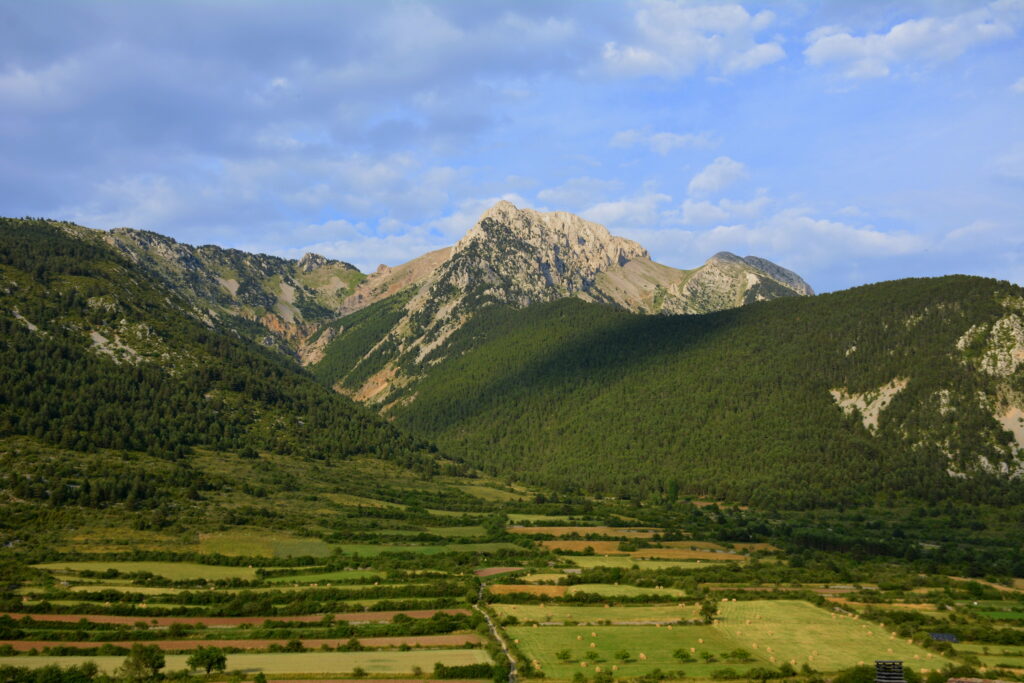
A mountain in the Catalonia region of Spain, where a new JGR Atmospheres study finds a hotspot of recurrent lightning strikes on high peaks. Credit: Angela Llop/flickr
AGU News
AGU Journalism Awards: deadline TONIGHT!
Don’t miss out! The deadline to nominate stories is 27 March at 11:59 p.m. ET. News and feature stories published in 2023 and focused on the Earth and space sciences are eligible. One entry per individual. [AGU journalism awards]
Register to attend the Triennial Earth-Sun Summit during the eclipse!
The Triennial Earth-Sun Summit (TESS) will be held 7-12 April in Dallas, Texas, in the path of totality. Scientific programming begins on 9 April, the day after the eclipse. To register, simply email us at [email protected]. Scientific sessions are on-site only. AGU’s housing is full. [TESS website][scientific program][press site]
Total eclipse of the Sun: The April issue of AGU’s Eos magazine is all about the eclipse. [Eos issue pdf, table of contents]
Featured Research
Lighting does strike twice in these hotspots
A new study questions the saying that “lightning never strikes twice.” Their analysis of 10 years of lightning activity in two suspected lightning hotspots, in northeastern Spain and north-central Colombia, reveals that high mountain peaks get more than their share of strikes. [JGR Atmospheres research]
Gulf of Mexico’s “dead zone” is acidifying rapidly
The northern Gulf of Mexico experiences a low-oxygen, high-nutrient “dead zone” in its bottom waters each summer. The first multi-decade reconstruction of pH reveals the dead zone is getting more acidic over time, in part due to ocean acidification and warming. Acidification is likely to worsen if emissions are not curbed. [Geophysical Research Letters research]
High lead levels in urban farm compost in Boston
Urban farms and gardens can be an important source of fresh, local food, improving food security, but soil and compost used can be contaminated with legacy metals such as lead. A new 15-year study of lead levels in municipal compost provided to urban farms in Boston reveals persistently elevated lead levels, even after the city switched vendors. [GeoHealth research]
Atmospheric aerosol injection side effects could warm as much as emissions
Injecting aerosols high into Earth’s atmosphere has been proposed as a mechanism for cooling the planet, with aerosol particles reflecting sunlight back into space. But uncertainties remain about what unintended effects the technique could have. Side effects from low-latitude injections could lead to as much warming as greenhouse gases could contribute, a new study finds. [Geophysical Research Letters research][AGU-led framework for ethical climate intervention research]
Manila confronts its plastic problem
The Philippine capital is the latest city to address rampant plastic pollution through a community-guided protocol. [Eos research spotlight][Community Science research]
AGU (www.agu.org) is a global community supporting more than half a million advocates and professionals in Earth and space sciences. Through broad and inclusive partnerships, AGU aims to advance discovery and solution science that accelerate knowledge and create solutions that are ethical, unbiased and respectful of communities and their values. Our programs include serving as a scholarly publisher, convening virtual and in-person events and providing career support. We live our values in everything we do, such as our net zero energy renovated building in Washington, D.C. and our Ethics and Equity Center, which fosters a diverse and inclusive geoscience community to ensure responsible conduct.